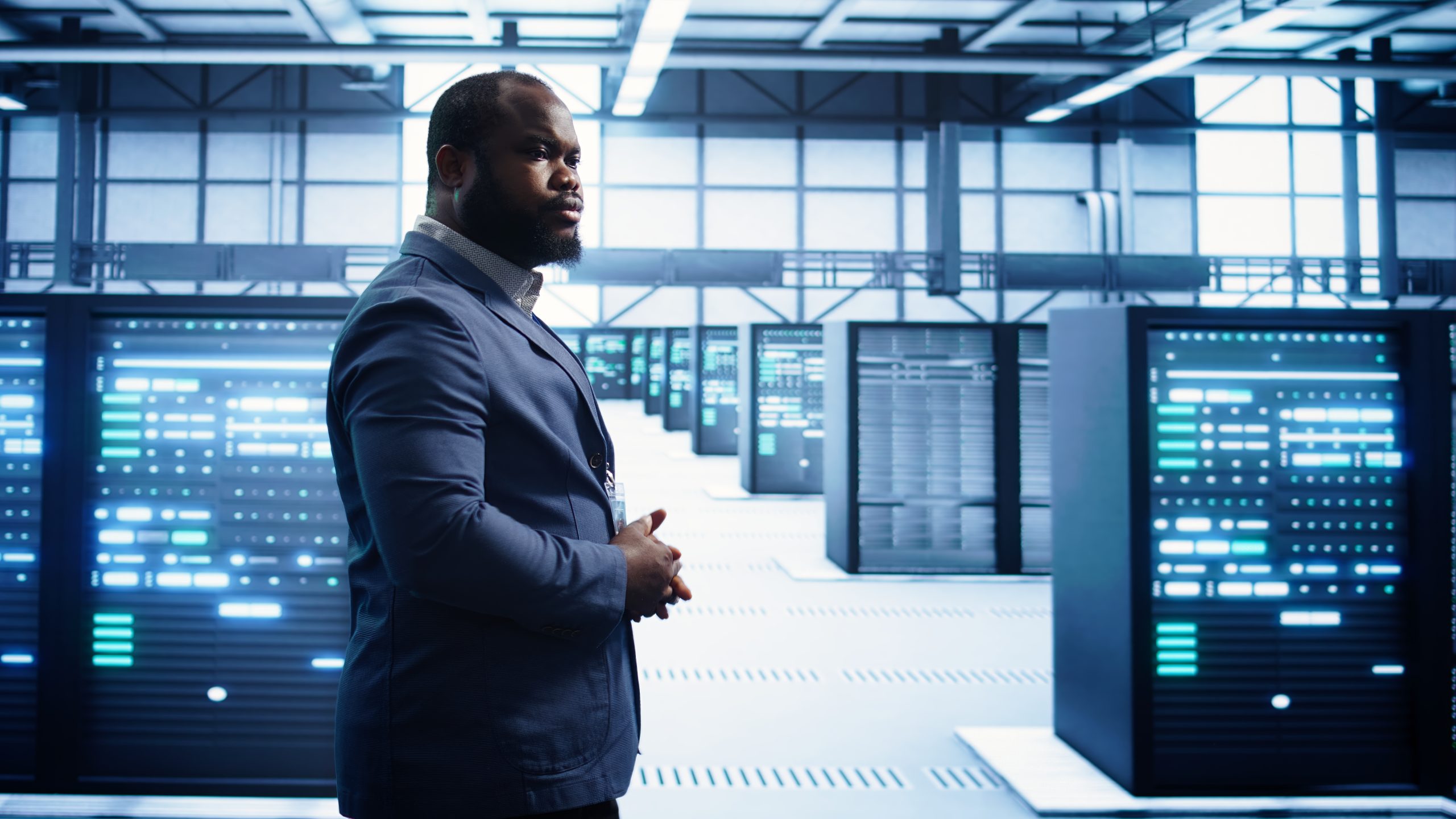Rapid digital transformation, especially in the global south, is outpacing investments in cybersecurity. New technologies and increased connectivity are expanding vulnerabilities, with threats like AI-driven phishing and ransomware on the rise.
As more services (e.g., mobile money, e-government) move online, threats such as SIM swap fraud, API breaches, and social engineering become more prevalent.
Many SMEs and even large organizations suffer from limited cybersecurity talent, poor awareness, and reliance on under-regulated third-party services. Cybersecurity is mistakenly seen as an IT-only issue rather than a core business risk.
Cybersecurity is not just technological—it’s behavioral. Lack of digital literacy among staff and users increases exposure to threats. Regular training, localized awareness efforts, and policy integration are essential but often neglected.
Weak cybersecurity affects trust, reputation, and economic outcomes. For governments, a proactive, measurable policy framework is crucial to reducing the risk of cyber attacks.

Watch Previous Episodes Here
In this episode of Kingsgate Brief, titled “Cybersecurity in an Evolving Digital Economy: Why It Matters Now More Than Ever,” we examine the crucial role of cybersecurity in today’s rapidly evolving digital landscape. From protecting data integrity to safeguarding national and economic security, discover why strengthening cyber resilience is no longer optional; it’s essential.
Cybersecurity isn’t just about firewalls and passwords. It’s about national security, economic stability, investor confidence, public trust, and long-term development, especially in regions undergoing rapid digital transformation, like the Global South. From mobile banking and e-commerce to online health records and government services, an increasing number of our critical systems now operate online. But as we connect more, we also become more vulnerable. Cyber threats are no longer just the stuff of spy movies — they’re real, frequent, and costly.
What happens when a hospital is hacked? Or when a small business loses its customer data? What’s the cost of a breach to a country’s reputation or investor confidence? And most importantly, how can we prevent these things from happening in the first place?
Host: Kechiro Ambro-Moye, Young Scholar, Kingsgate Advisors Institute.
Guest: Funmilayo Akinti, Founder, Soberlight Tech Secure Systems.
EPISODE SUMMARY:
This segment discusses the current state of cybersecurity, how it can affect economic
outcomes, and what a strong cyber policy should look like for individuals, businesses,
institutions and government.
Kechiro Ambro-Moye: Hello everyone, welcome to the Kingsgate Brief, where knowledge meets impact. I am Kechiro Ambro-Moye, I am a Young Scholar here at the Kingsgate Institute, and I’ll be your host for today’s episode. If you’re tuning in for the first time or you’ve been with us from the very start, we’re glad to have you. And if you haven’t already, I highly recommend checking out our previous episodes, they are filled with powerful insights and they are absolutely worth your time. In today’s episode, we are going to be doing a dive into the world of cybersecurity, not just as a tech issue, but as a major economic, developmental, and even national security concern. To discuss this, I have with me a seasoned cybersecurity specialist, and I’ll be revealing her profile very shortly.
So basically, in this episode, we’ll be talking about our hyper-connected world as of today. From mobile money to online government services, our lives have been increasingly lived and exposed online. And while digital transformation brings great opportunities, it also has its own downside. And that’s why cybersecurity matters more now than ever in our ever-evolving digital economy. So cybersecurity isn’t just about firewalls or passwords, it’s about national security, it’s about economic stability, investors’ confidence, public trust, and long-term development, especially in regions undergoing rapid digital transformation like the global south. But as we connect more, we’ll also become more vulnerable to these cyberattacks, and they aren’t just disrupting hospitals or bankrupting small businesses; they are shaking investors’ confidence as well. And they are even compromising entire governments.
So what happens when a hospital is hacked?
What happens when a small business loses its customers’ data?
What’s the cost of a breach of a country’s reputation or investors’ confidence?
And most importantly, how can we prevent these things from happening in the first place?
So to unpack all of this, I have with me our very special guest, Ms. Funmi Akinti.
Ms. Funmi is a seasoned IT and business operations leader with over a decade of experience driving strategic growth across the finance, telecom, and energy sectors. As the founder of Saberlight Tech Secure System, she’s passionate about cybersecurity, risk analysis, and aligning technology with business outcomes. Known for her sharp strategic insights and deep technical expertise, she has led major enterprise deployments for organisations like the CBN, NNPC, and the First Bank. She’s also an advocate for women in STEM and a strong voice in Africa’s evolving tech ecosystem.
Ladies and gentlemen, please join me in welcoming Ms. Funmi. Good evening, Ma, and thank you for joining us today.
Mrs Funmi Akinti: Good evening. It’s my pleasure to be here today. Thank you for having me.
Kechiro Ambro-Moye: Thank you so much, Ma. It’s truly a pleasure to have you here today. So now in our world today, we hear a lot of buzzwords about things like digital transformation, innovation, and even disruptions. But beneath all this excitement is something very quiet that is not spoken much about, and that is the urgent conversation about cybersecurity. And I think for a lot of people, cybersecurity only becomes a topic of interest when something goes wrong, like when there is a system crash, a data breach or a headline about a major hack. So I would like us to start this conversation from a broad angle, from your own point of view. How would you describe the current state of cybersecurity globally today, especially in the context of rapid digital growth across economies?
Funmi Akinti: Thank you. So, digital innovations and advancements are outpacing cybersecurity investments. What I mean by that is that every other day, new applications and innovations are coming out. And these innovations are hoisting the life of everyday users. We are trying to make things as simple as possible. But the downside to that is that the more we make those things simple, the higher the risk they cause. And most times, people think of this infrastructure and think of security. They think of security as an aftermath instead of embedding it into the whole structure. So, because of these cybersecurity investments, it’s taking a close or a fast second to digital investments. This year, we’ve seen ransomware happen to the popular Marks & Spencer. This just happened around March this year. And then United Nations food. And these things are easier because of AI and deepfakes. Before now, it was usually much harder to come up with cyberattacks. But now, because of AI, it has made it very easy to deploy attacks, to attack organizations, leading to millions in losses.
So globally, security investment is taking a very slow or second place to digital connectivity, digital investments, and innovations. Innovations are going on and are coming out. Both cybersecurity and security investments are taking a very close look. In fact, there’s something we call a platform as a service. Platform as a service means that you don’t need to have your own server, just subscribe to cloud services and then have access, like your email. You don’t have any infrastructure, but you are using email and stuff like that. So, do you know that there are things called ransomware as a service, where you can go and subscribe, and then they help you attack people with ransomware? That is how fast these things are now because of AI. It’s really the distance between the investments in security investments and then digital investments, they are quite water fast, and most times, we react to security incidents as much, instead of embedding them into our day-to-day processes.
Kechiro Ambro-Moye: Okay, thank you so much, Ma. So, from what you just said, it’s really sad that big companies and large economies fall victim to all this cyber malware, cybercrimes, and all of that. But it’s a good thing that we have an antibody to attack this, and that leads us to our second question.
Host
Guest

Young Scholar - Kingsgate Advisors Institute

Founder - Saberlight Tech Secure System
Address:
54B, Adeniyi Jones Avenue, Ikeja, Lagos, Nigeria.
Contact:
+2347033052120
info@kingsgateinstitute.org
© Kingsgate Advisors Institute. All rights reserved.
Address:
54B, Adeniyi Jones Avenue, Ikeja, Lagos, Nigeria.
Contact:
+2347033052120
info@kingsgateinstitute.org
© Kingsgate Advisors Institute. All rights reserved.